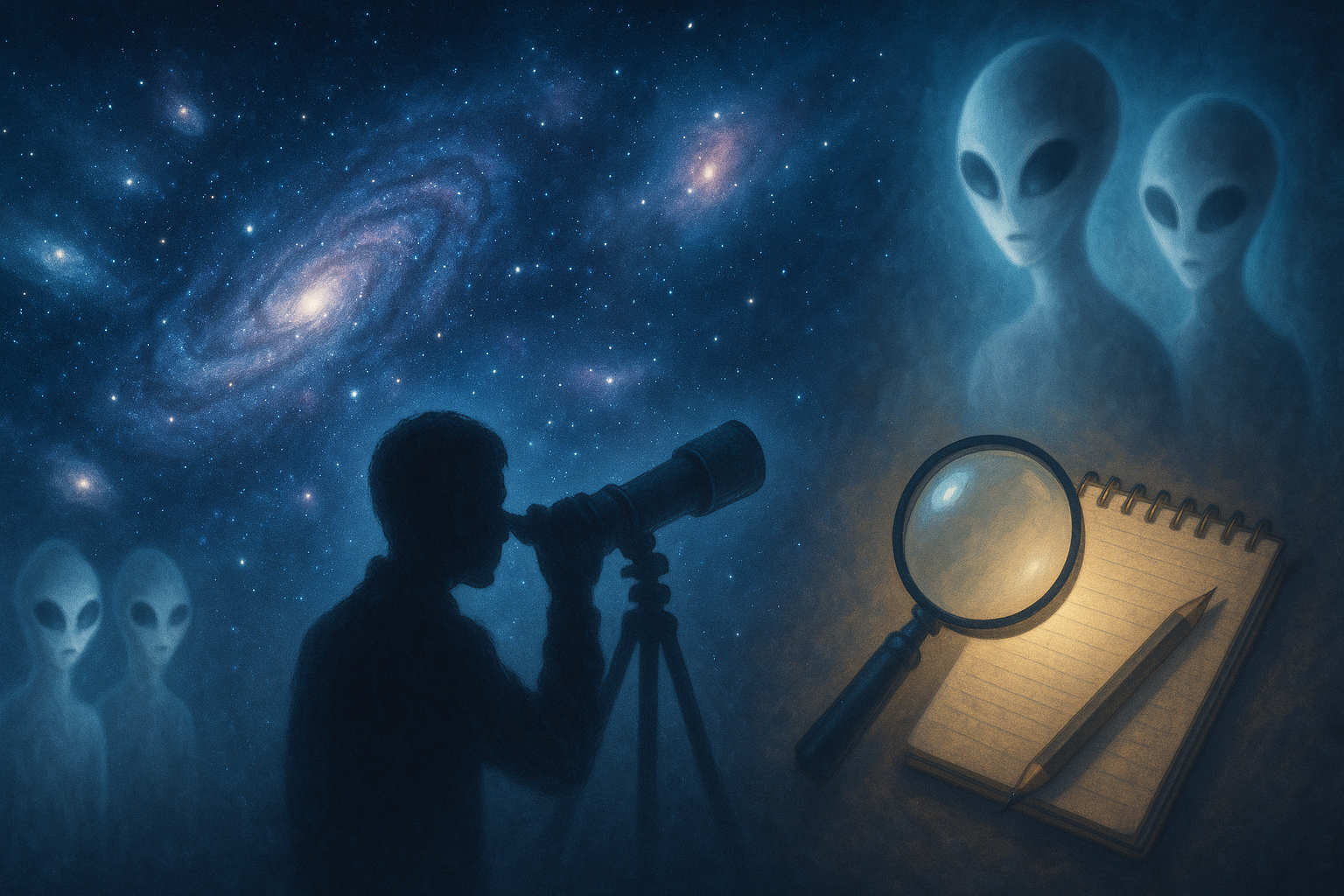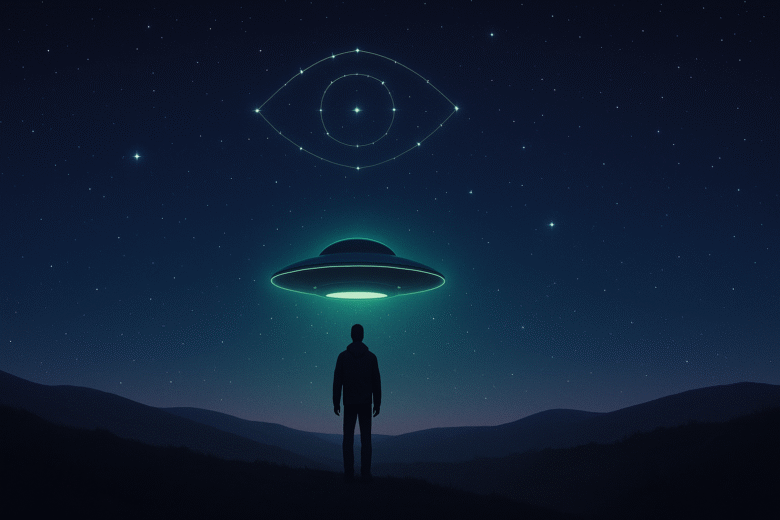Approaching Alien Encounter Claims with a Critical Eye
The allure of the unknown has always captivated human imagination, with alien encounters being one of the most intriguing subjects. These mysterious tales offer a glimpse into a universe filled with possibilities, but how should we approach these claims? It’s essential to balance fascination with skepticism and to analyze these stories critically. In this blog post, we’ll explore how to evaluate alien encounter claims thoughtfully and responsibly.
Table of Contents
1. Understanding the Origin of Alien Encounter Claims
2. Evaluating the Evidence
3. The Role of Media and Pop Culture
4. Scientific Perspectives on Alien Life
5. Why Critical Thinking is Essential
6. Conclusion
7. FAQs

Understanding the Origin of Alien Encounter Claims
Alien encounter claims have been around for centuries, with stories ranging from ancient civilizations’ depictions of sky beings to modern-day UFO sightings. Often, these reports originate from personal experiences, unexplained phenomena, or simply human creativity. But where do we draw the line between reality and imagination?
Many claims originate from individuals who genuinely believe they have witnessed something extraordinary. However, it’s crucial to consider the psychological and environmental factors that may influence these perceptions. For instance, sleep paralysis and vivid dreams can create convincing, yet entirely natural, experiences that feel otherworldly.

Evaluating the Evidence
When assessing alien encounter claims, evidence is key. Unfortunately, concrete evidence is often scarce, and many claims rely on anecdotal accounts. Photos and videos can be easily manipulated, making it difficult to verify their authenticity. It’s essential to approach such evidence with a healthy dose of skepticism and a keen eye for inconsistencies.
Moreover, scientific investigations into UFO sightings have often pointed to misidentified natural phenomena or human-made objects. For example, the planet Venus, weather balloons, and military aircraft have all been mistaken for alien spacecraft at one time or another.
The Role of Media and Pop Culture
Media and pop culture play a significant role in shaping our perceptions of alien encounters. Movies, books, and television shows often sensationalize these stories, blurring the lines between fiction and reality. While entertaining, they can contribute to misinformation and skew public understanding.
It’s important to recognize the influence media has on our beliefs and to differentiate between entertainment and credible information. A critical eye can help us appreciate these stories without accepting them as fact.
Scientific Perspectives on Alien Life
Science offers a grounded perspective on the possibility of alien life. While the existence of extraterrestrial beings has not been proven, the vastness of the universe suggests that it is plausible. Astrobiologists are actively searching for signs of life beyond Earth, examining planets and moons within our solar system and beyond.
Projects like the Search for Extraterrestrial Intelligence (SETI) aim to detect signals from alien civilizations, though no definitive evidence has been found as of yet. The scientific community remains open to the possibility but emphasizes the need for verifiable evidence.
Why Critical Thinking is Essential
Approaching alien encounter claims with a critical eye is vital for several reasons. Firstly, it helps prevent the spread of misinformation, which can lead to unnecessary fear or false hope. Secondly, it encourages a deeper understanding of the psychological and environmental factors that contribute to these claims.
Critical thinking also promotes scientific inquiry and rational discourse, allowing us to appreciate the mystery of the universe without jumping to conclusions. By questioning and analyzing claims, we can foster a more informed and curious society.
Conclusion
Alien encounter claims invite us to explore the unknown, but it’s essential to approach them with a balanced perspective. By understanding the origins of these claims, evaluating evidence critically, and remaining aware of media influences, we can enjoy these captivating stories without losing sight of reality. Ultimately, a critical eye helps us appreciate the wonder of the universe while maintaining a commitment to truth and understanding.
FAQs
Q: Are there any confirmed cases of alien encounters?
A: As of now, there are no scientifically verified cases of alien encounters. Most claims lack concrete evidence and are often explained by natural or human-made phenomena.
Q: Why do people believe in alien encounters?
A: Belief in alien encounters can stem from personal experiences, cultural influences, and a desire for understanding the unknown. Psychological factors, such as sleep paralysis and vivid dreams, can also contribute to these beliefs.
Q: How can I critically assess an alien encounter claim?
A: To critically assess a claim, examine the evidence, consider alternative explanations, and be aware of media influences. It’s important to differentiate between anecdotal accounts and verifiable facts.
🌌 Keep looking up, and stay curious about the universe! 🚀
Looking for a side hustle
Check out one of the best around atm
